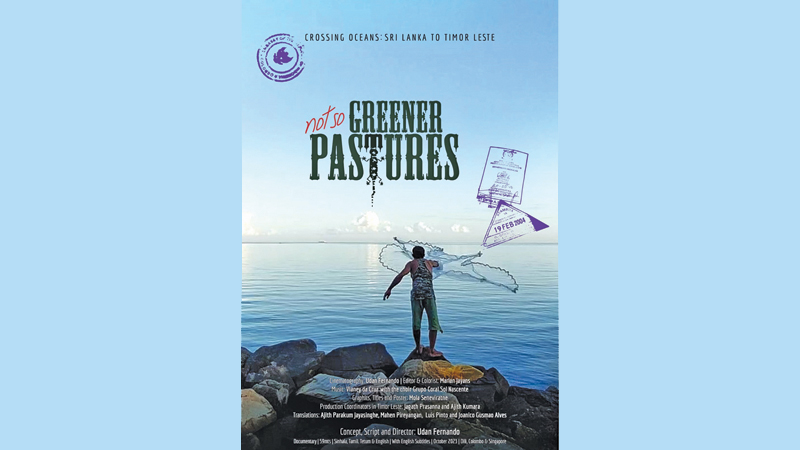Foucault, in Panopticism (Foucault, 1977, pp. 210–245)speaks about governance of human bodies and populations through the technologies of “discipline”. It is not only the military, the police, but also the gamut of institutions such as schools, hospitals and corrective institutes that follow a set of anti-nomadic techniques that restrict human body. Likewise, the nation state would define the migrants with visas as “regular” while those who transgress the territorial limits would be seen as “irregular” migrants.
While there is much emphasis on capital accumulation within the scheme of globalisation, which should also ideally speak of a deterritorialised world that enables human mobility, the crossing of territorial borders without due procedures is still a serious offence. Those who migrate within the given immigration parameters are naturally accepted within the moral standards set by the state. However, during the process of passport and visa submission and travel humans become subjects of state surveillance and disciplining mechanisms.
Success
Greener Pastures is a compilation of stories of such nomads, whether they transgressed the laws or not is not a question worth asking at this point, given they have found what they aspired. The labour migration discourse within the institutional limits, is preoccupied with the discussion of successful labour migration or successful returnees. The success is measured by the economic capital, knowledge or the skills accumulated by the migrants during their migration period. Success is relative. Udan Fernando, in this well-researched documentary provides first person point of views of a group of Sri Lankans who left for Timor-Leste, through acquaintances and networks built a Sri Lankan community of their own and defined their own success.
They are also living testimonies for two parallel state building projects. While they flee one ethno-religious conflict, they reach another land that is caught up in another state-building project, they witness the new regimes assuming power, they witness the development partners testing their aid models and most importantly witness a nascent nation-state building project. The political irony is also that one state building project succeeds while the other does not make it to its end.
Protagonists
Some of the Sri Lankans, the protagonists of this documentary are bound by political activism that they have been engaged in supporting Timor-Leste through transnational movements. They have been protesting in front of the Indonesian Embassy in Sri Lanka fighting for a separate state for Timor Leste. However, their political activism was met with state repression. While they fought the political battle for the establishment of a new nation state, they also happened to be some of the predecessors of the new nation state and its business community that contributed to the country’s infrastructure development and capital flow. The automobile centre, the restaurants, the groceries and the other small-scale businesses built by the Sri Lankans become indispensable resources in Timor Leste.
The protagonists through their stories guide us towards the transient nature of human life. Human beings are naturally mobile creatures. The Māoris that landed from Polynesian islands in canoes following the stars form Aotearoa what is now known as Aotearoa New Zealand, the nation state, the South Indians that landed in Thambapanni in waves are some of the early settlers of now what we call Sri Lanka and similarly the Sri Lankans that landed in Timor Leste during a tumultuous period are very much part of its nation state creation.
The movie itself shows how the nation states are built and enriched by the migrant communities, though the anti-migrant narratives would contest this narrative. Human beings are not defined by spatial limits. While some prefer a sedentary lifestyle, some form their own journeys and destinations. Mage gamana mama yanawa – I am off for my journey, the departing lines from Ajith as he disrobes and hands over his belongings to the reverend are symbolic for how human beings evolve from one journey to another.
“I am like a seed that grows wherever it lands”, Buddhika’s statement itself proves how they have been resilient as a group. Especially, they land in a place that they have not heard of before, they were given maps to find their own pathways to a few small cities. Buddhika says Timor Leste was not even his destination. Even though, it may appear as a transit point for some of them, they find their own roots in a new place – fleeing one conflict to another, they have found their destination. They have formed families, supported their families in Sri Lanka, supported the country’s economy to flourish and afforded a good education for their children as parents. Some of the protagonists say they would prefer finally to rest in Sri Lanka and for Buddhika, he wants to go back to Sri Lanka to rekindle with his family. The journeys and destinations are what we make from it.
Udan Fernando, in the movie narrates the stories with a hopeful background music. He provides an important guide to navigate the current anti-migration and pro-migration debates in Sri Lanka. The hopefulness and the perceptions about the other end of the world being greener, some of the political-economic conundrums that people face as a result of their decisions and how they, as human beings or Sri Lankans define what is “greener” in such contexts can be discussed in detail with this movie. It is both a story of resistance and resilience of human subjects. He presents a story of resilience and “success”.
The video clips of glorious sunsets from Timor Leste, its harbours and streets transport the audience to a country that is still in the making. It is the simplicity and the originality of the stories that make the documentary accessible. He brings the perspectives from historians and activists on the history of Timor Leste that makes it a must-watch for the students of political science, history and international relations. For those who study cinema, it is a piece that tells how simple technology could tell a complex story.
Avanthi Kalansooriya is a PhD Candidate at the University of Otago.






